45+ Sample Thesis Evaluation
-
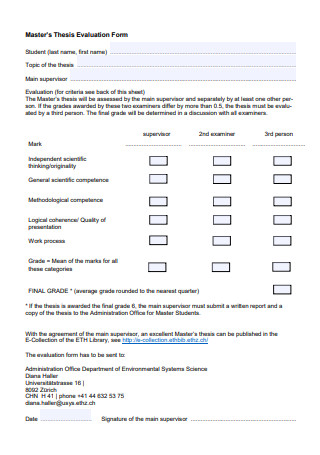
Master Thesis Written Evaluation Form
download now -
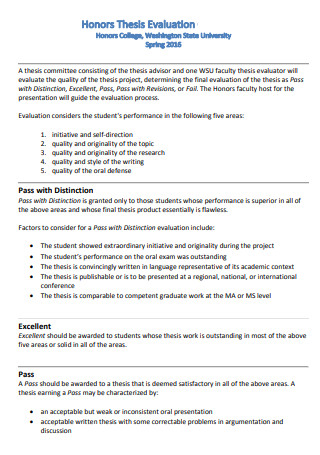
Honors Critical Thesis Evaluation
download now -
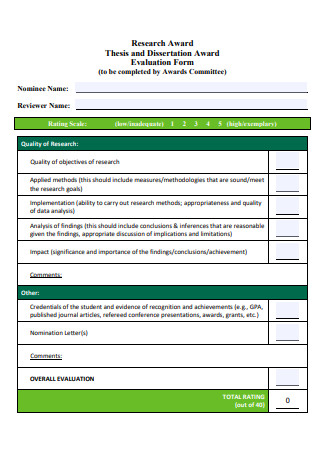
Thesis and Dissertation Award Evaluation Report Form
download now -
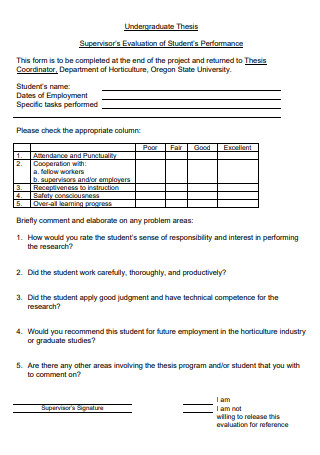
Undergraduate Thesis Supervisor Evaluation Assessment Form
download now -
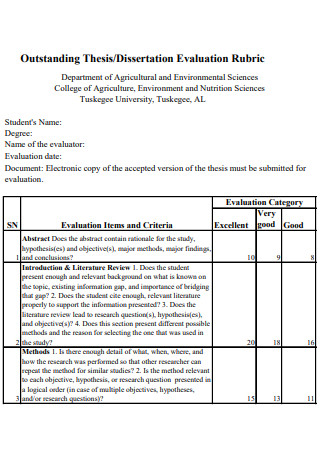
Outstanding Thesis Dissertation External Examiner Evaluation
download now -
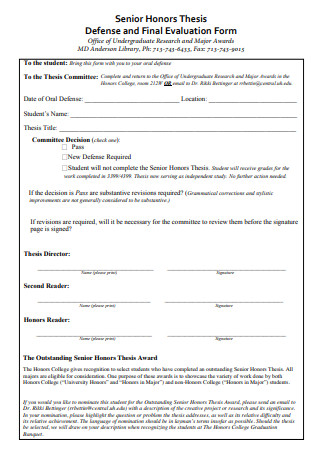
Senior Honors Thesis Defense Evaluation Criteria Form
download now -
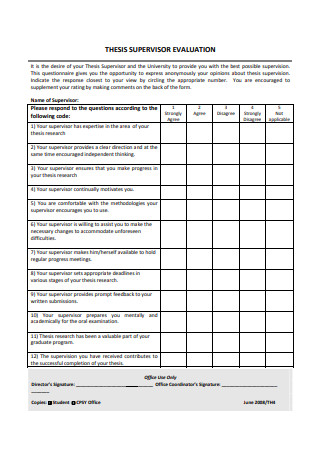
PhD Thesis Supervisor Evaluation
download now -
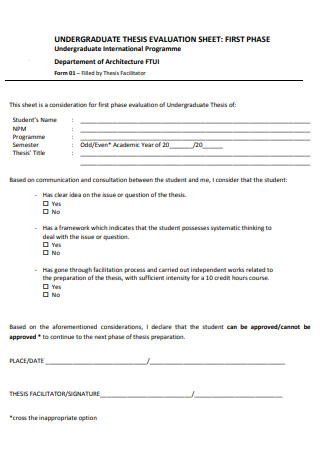
Undergraduate Thesis Evaluation Sheet
download now -
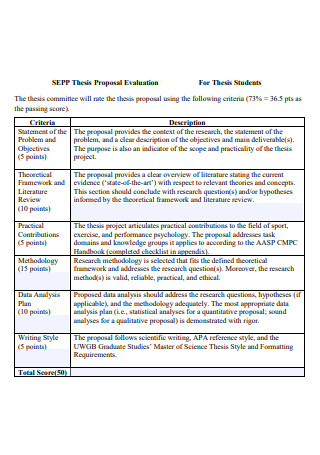
Thesis Proposal Evaluation For Students
download now -
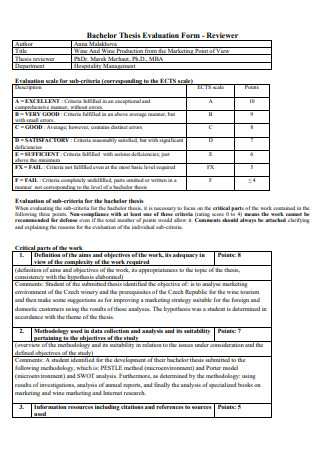
Bachelor Thesis Evaluation Form
download now -
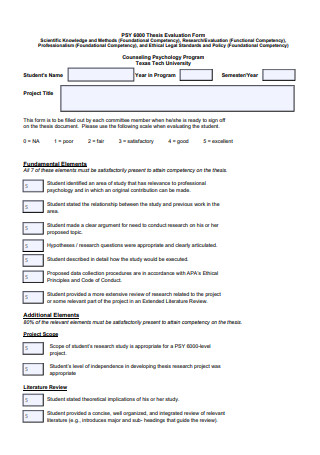
Thesis Evaluation Form
download now -
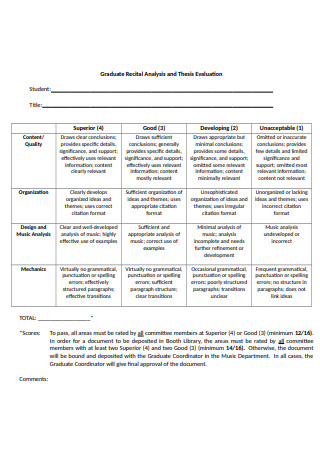
Graduate Recital Analysis and Thesis Evaluation
download now -
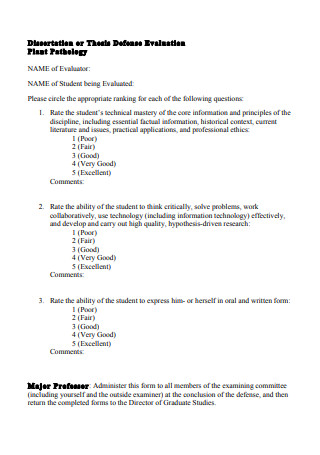
Thesis Defense Evaluation
download now -
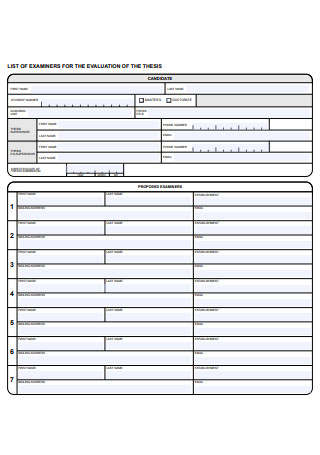
Thesis Evaluation of Examiners
download now -
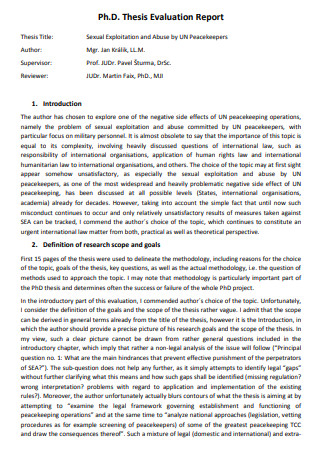
Thesis Evaluation Report
download now -
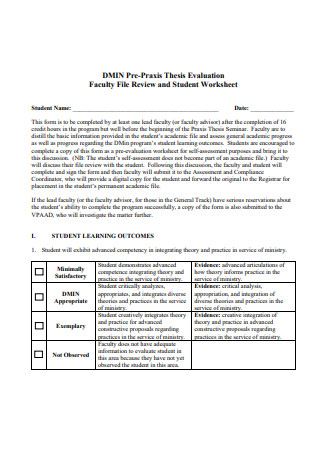
Thesis Evaluation and Student Worksheet
download now -
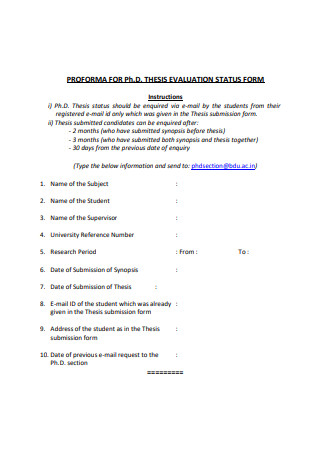
Thesis Evaluation Status Form
download now -
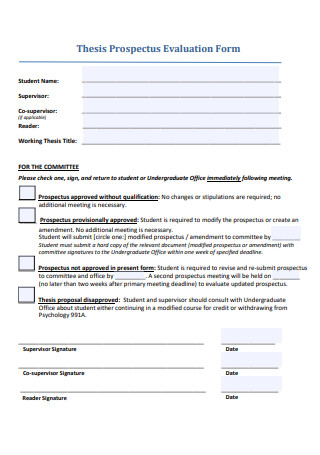
Thesis Prospectus Evaluation Form
download now -
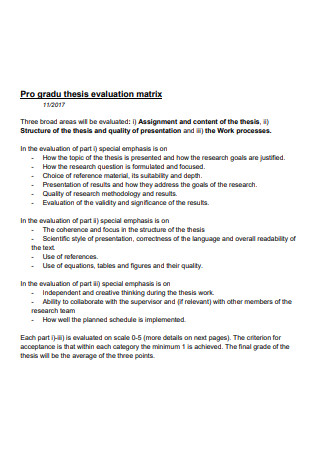
Thesis Evaluation Matrix
download now -
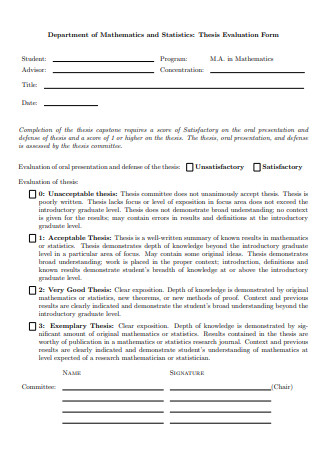
Department of Mathematics and Statistics Thesis Evaluation Form
download now -
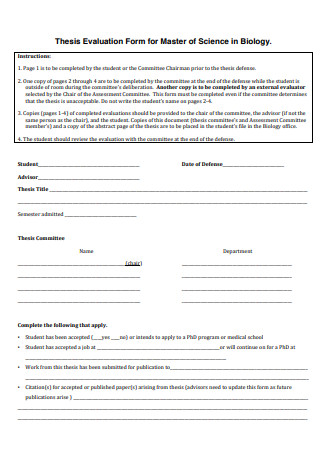
Thesis Evaluation Form For Master of Science in Biology
download now -
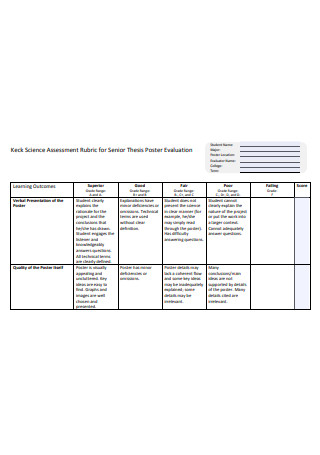
Senior Thesis Evaluation
download now -
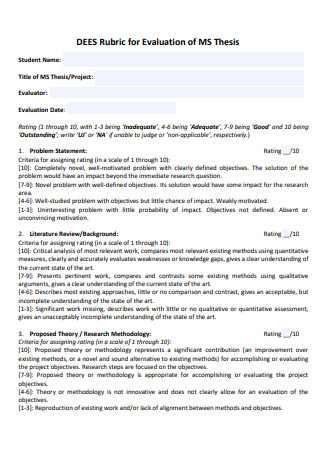
Basic Thesis Evaluation
download now -
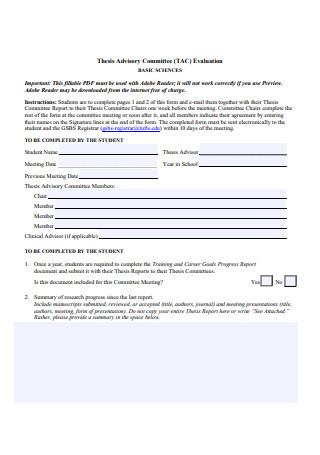
Thesis Committee Evaluation
download now -
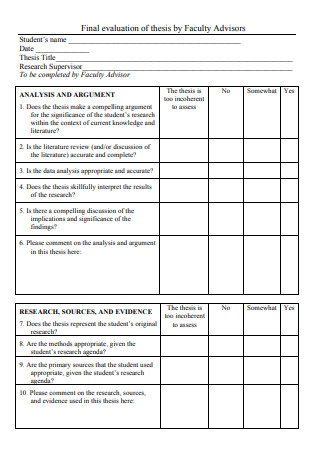
Faculty Thesis Final Evaluation
download now -
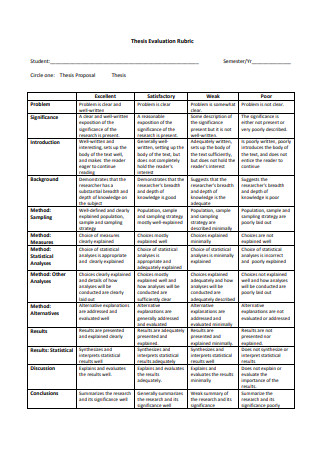
Thesis Evaluation in PDF
download now -
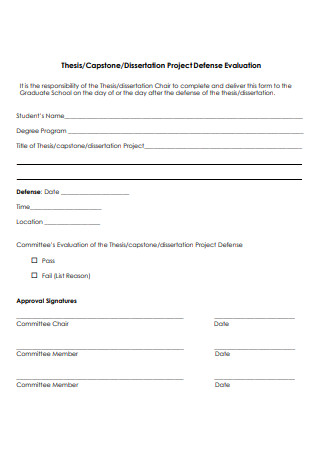
Thesis Dissertation Project Defense Evaluation
download now -
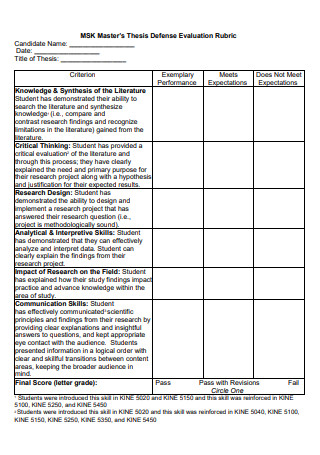
Master Thesis Defense Evaluation
download now -
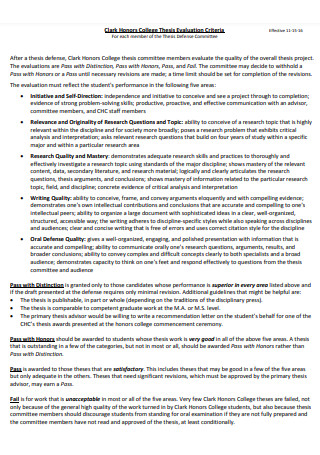
Honors College Thesis Evaluation
download now -
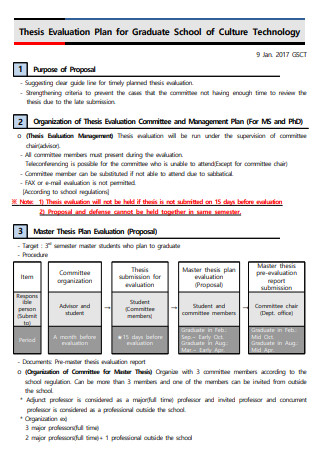
Thesis Evaluation Plan
download now -
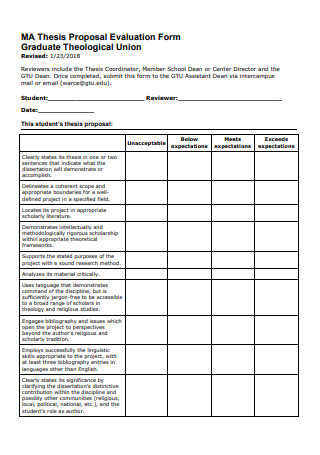
Thesis Proposal Evaluation Form
download now -
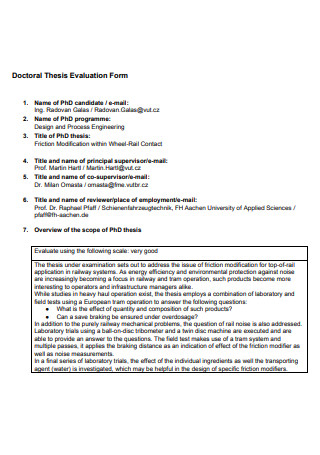
Doctoral Thesis Evaluation Form
download now -
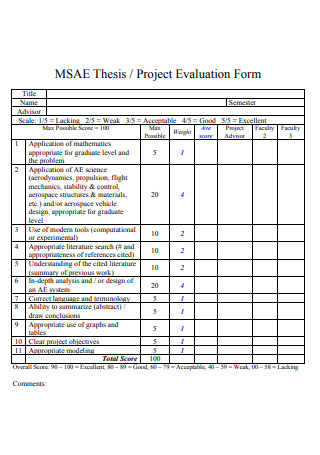
Thesis Project Evaluation Form
download now -
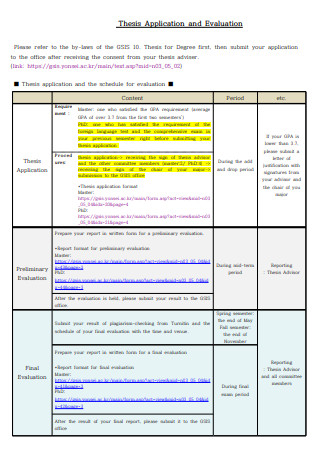
Thesis Application and Evaluation
download now -
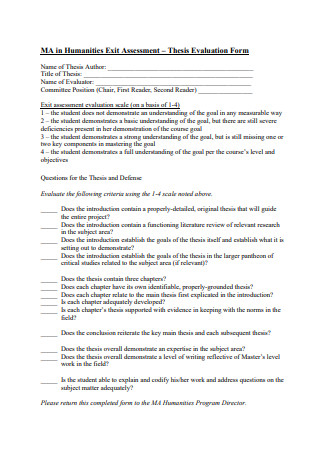
Humanities Exit Assessment Thesis Evaluation
download now -
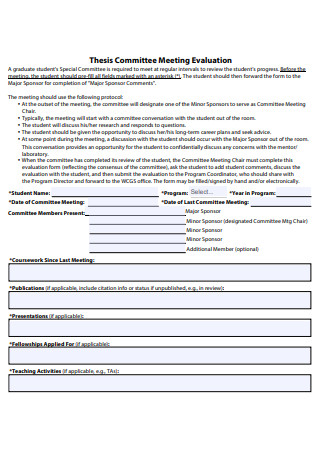
Thesis Committee Meeting Evaluation
download now -
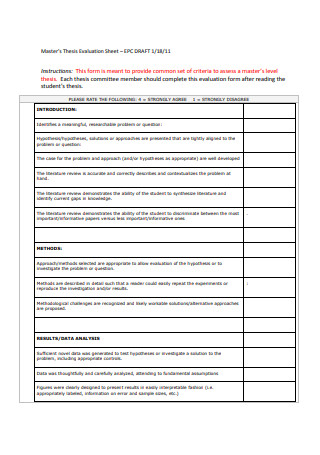
Master Thesis Evaluation Sheet
download now -
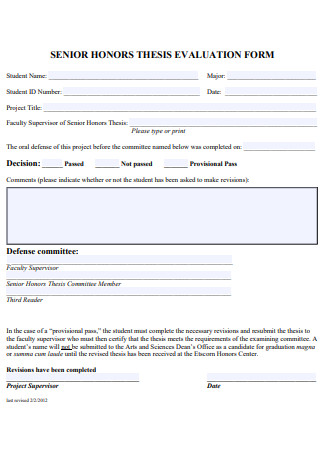
Senior Honors Thesis Evaluation Form
download now -
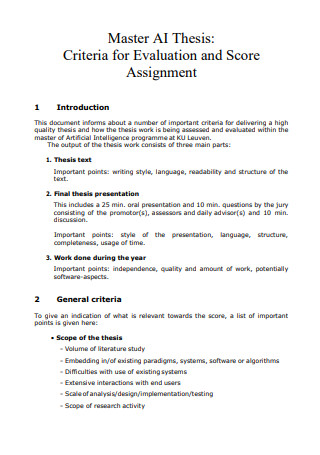
Master Thesis Evaluation and Score Assignment
download now -
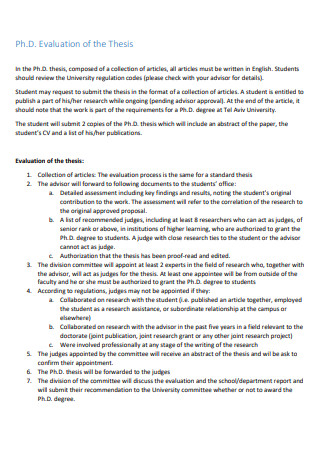
Thesis Evaluation Example
download now -
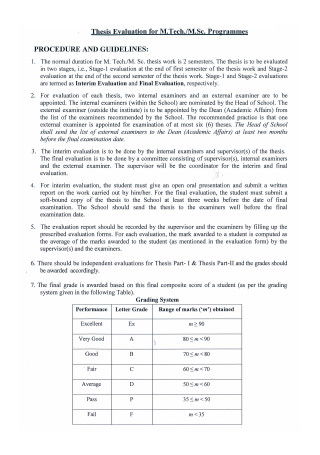
Programmes Thesis Evaluation
download now -
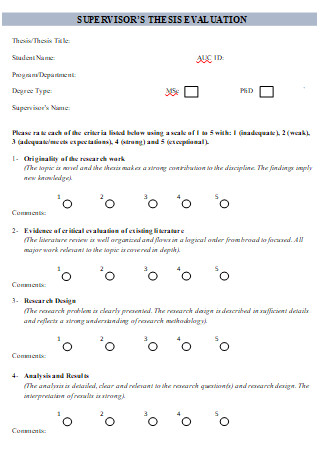
Supervisor Thesis Evaluation
download now -
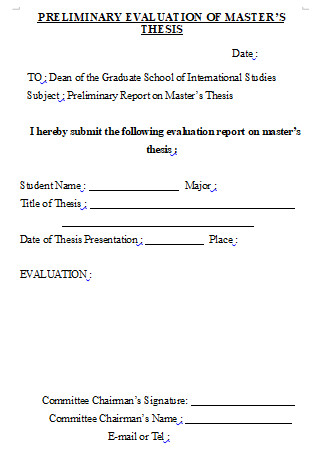
Master Thesis Preliminary Evaluation
download now -
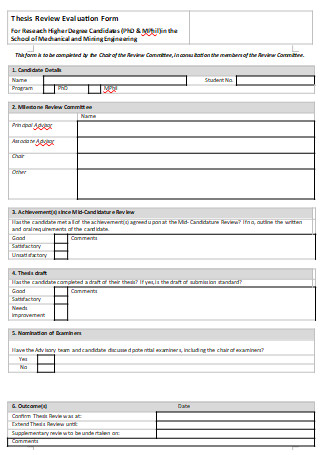
Thesis Review Evaluation Form
download now -
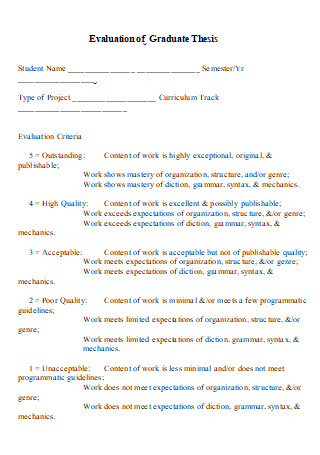
Graduate Thesis Evaluation
download now -
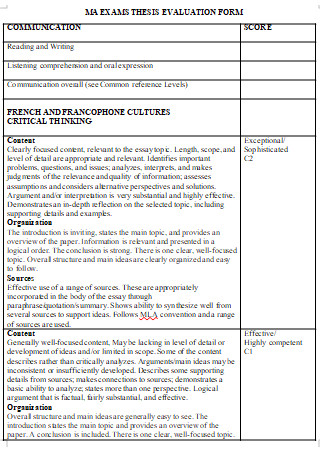
Exams Thesis Evaluation Form
download now
FREE Thesis Evaluation s to Download
45+ Sample Thesis Evaluation
What is a Thesis Evaluation?
Different Types of Thesis Evaluation
Benefits of Writing a Thesis Evaluation
Basic Elements of a Thesis Evaluation
How to Write a Thesis Evaluation
FAQs
What are some examples of thesis
What is the purpose of a thesis evaluation?
What are the essential steps in writing a thesis evaluation?
How to write a good thesis introduction?
What is a Thesis Evaluation?
A thesis evaluation is a well-defined document that presents a systematic analysis of a graduate student’s thesis statement. This is a beneficial evaluation report which is written based on the diploma, graduate, master, or doctorate program policies of the graduate school, as well as the program and department that the candidate belongs to. Also, it is an efficient tool in measuring the level of relevance in research, clarity in methods being described, accuracy in data, precision in results and credibleness in references.
For instance, a 2010 study stated that 54% of 350 theses under examination were surveys, 25.43% were experiments, and 8.57% were qualitative research while the number of theses including both qualitative and quantitative research was 4.85%. And the study revealed that quantitative research models were overwhelmingly used in the master’s theses while data analysis techniques like descriptive statistics were most frequently used. Thus, all types of novice and professional thesis evaluators of various theses from graduate students should properly create an effective thesis evaluation for their work.
Different Types of Thesis Evaluation
Each graduate student in a college, university, or grad school should complete a final thesis as the culmination of their work toward obtaining a Master’s or Doctor’s degree. A research thesis, an artistic thesis, and a project thesis are some common forms of a thesis. In a research thesis, students produce and defend a substantial research essay or thesis related to their course of study. While the artistic thesis is made for students who want to showcase their creative process in the performing, visual, or literary arts. In this section, you will learn and understand about the different types of thesis evaluation because your style and method is determined by a particular type of thesis evaluation you will develop. To help you in this matter, we will introduce and explain to you about the different types of thesis evaluation reports below:
1. Bachelor Thesis Evaluation
Graded by averaging the grades provided by the supervisor, the bachelor thesis must be assessed or evaluated on a number of criteria by the thesis evaluators who mark those criteria which are constructive in providing concise feedback of the student’s final version of bachelor thesis It is essential to concentrate on the critical parts of the bachelor thesis work. While the thesis evaluator should provide comments that clarify and explain the reasons for the thesis evaluation of the individual sub-criteria indicated in the bachelor thesis evaluation form. Then, the overall evaluation is the sum of the points from the partial criteria. It may be revised if the students receive no points for any of the fire three criteria. Include an overall grade scale in the thesis evaluation form.
2. Master Thesis Evaluation
A master thesis evaluation is an examination of a thesis which appears to be smaller in scope compared to a dissertation or thesis and more focused on an applied research problem. Thus, a thesis evaluator should check the student’s master thesis if the scope of research has been defined and the goals of the thesis are evident. The main supervisor is the one in charge of assessing the master thesis, checking the thesis work based on the criteria such as independent scientific thinking or originality, general scientific competence, methodological competence, logical coherence and quality of presentation, and work process.
3. Doctoral Thesis Evaluation
Historically considered as the preeminent graduate program capstone, a doctoral thesis evaluation is a type of thesis evaluation which follows an analysis of a systematic process that has a research problem statement, supporting literature, and concept, data collection methods, data analysis, and discussion and conclusions according to the outcomes of the study. A dissertation or thesis evaluation has aimed on the fundamental inquiry to fully understand some phenomenon and to incorporate this understanding as new knowledge to the literature, as well as the academic discipline. Thus, a thorough evaluation of a doctoral thesis gives an original contribution to the academic knowledge, possibly transformational, enormous scale, with an extensive literature review, and potentially formulating or testing a theory.
Benefits of Writing a Thesis Evaluation
Thesis evaluators tend to be broadly consistent, expect a thesis to pass, judge a thesis by the end of the first or second chapter, read a thesis as an academic reader and as a normal reader, and they are also irritated and distracted when they come across several presentation errors. While evaluating a thesis, it is important to look for coherence, and relevance of the paper, plus having a convincing approach. So, what are the notable benefits of writing a comprehensive thesis evaluation? Below are some of the primary benefits of writing a thesis evaluation report:
1. Maintains a Clear Analysis of Thesis Work
If you are a thesis evaluator, then writing an evaluation report is definitely essential to maintain a clear analysis of a graduate student’s thesis work. This will guide you to check and evaluate the current status of the student’s thesis work. Additionally, you put your careful attention while examining a particular thesis based on the criteria established by a thesis examiner report form for a Bachelor’s, Master’s or Doctoral thesis.
2. Facilitates Organized Decision Making
Thesis evaluation can significantly help in providing fundamental data for organized decision making. Scientific method is extensively applied in logical evaluation. So, it is a systematic endeavor that can be used by many professionals like thesis evaluators. It also measures the worth of a particular idea enclosed in the thesis of the student. Thesis evaluators possess the proper methods, processes, standards, and tools to guide their evaluation of a student’s thesis successfully. Thus, it can help in deriving general conclusions.
3. Aims on a Student’s Overall Performance
In order to focus on a student’s overall performance plans, it is fundamental that you write a thesis evaluation report. Thesis evaluation reports are useful for students to know, understand and improve the quality of their thesis. Evaluators favor a thesis that exhibits coherence, with a convincing approach that engages with the literature and the research findings, but they require a passable thesis to be original and publishable research. So, a thesis evaluation contains the evaluators’ judgments concerning the quality of a thesis while bringing constructive, formative feedback about how the students must improve in their thesis writing.
4. Provides Summative Comments
Creating thesis evaluation reports is beneficial in providing summative comments, similar to a final grade or evaluation. When a certain thesis meets their expectations, they give praise; but if it does not, thesis evaluators provide negative judgments. However, this is different to fine art thesis examiners because they did not see themselves as gatekeepers who uphold the standards for a master’s or doctorate degree, but more as explorers of student work. Also, thesis evaluations contain instruction and advice regardless of the quality of the thesis.
Basic Elements of a Thesis Evaluation
In this section, you will learn how to construct a remarkably written and comprehensive thesis evaluation report. However, a thesis evaluation report has different parts. Include the following elements for you to create an excellent document:
How to Write a Thesis Evaluation
The book Writing the Winning Thesis or Dissertation: A Step-by-Step Guide explained that evaluation of a research study like a thesis makes judgments about the merit or worth of educational programs, products, and organizations and it is commonly undertaken to guide administrators in formulating professional decisions. Below are some easy-to-follow tips that indicate how to design and write a professional thesis evaluation:
Step 1: Observe the Title and Theoretical Background of the Research
A thesis evaluator’s first impressions are greatly influenced by how he or she reads the beginning part of the thesis of a graduate student. They make an initial judgment about the quality of a thesis early by observing and reading the title and theoretical background of the research. Try to skim the abstract, table of content, and the whole introduction. Examine the literature review of the thesis so that you are able to decide whether the student is aware and familiar with what they are doing.
Step 2: Read the Overall Thesis as an Academic Reader and as a Normal Reader
To sustain a good impression, a thesis should be an enjoyable document to read. Thesis evaluators allocate ample time and effort while assessing a particular thesis. If they are not enjoying the reading, they are more likely to judge the student’s thesis to be poor quality. So, read the thesis during the evenings but if you are exhausted, you may take some time to take a short nap so that you can recharge your mind and become focused in your reading. Read it several times. Make sure that the thesis meets your academic expectations and your expectations as normal readers. What does it mean to be both an academic and normal reader? Expect the thesis to be academically sound as it engages well with the literature and has a proper methodology while being clear, interesting, and easy to follow.
Step 3: Search for Possible Errors in a Balanced Way
Are you distracted, frustrated, and agitated by frequent errors that could have been fixed easily in a particular thesis work? Search for possible typographical or spelling errors, or check if the formatting is unclear and inconsistent. This will help you to see the competency level of the thesis writer. However, you need to examine the content of the thesis more than the errors in spelling, grammar, or punctuation use.
Step 4: Develop a Comprehensive Evaluation
Look for coherence in the student’s thesis writing. The thesis should have focus, flow, and a logical and explicit structure that integrates and connects the different parts of the thesis. See if the student took some time to analyze, interpret, categorize, order or apply the literature, essential in drawing fresh insights and conclusions. Did the student convince you that the approach they adopt is appropriate? Evaluate if the student applies their approach carefully and thoroughly. Thus, develop a comprehensive evaluation of the thesis work’s validity.
Step 5: Proofread, Revise, and Prepare the Final Thesis Evaluation Report
Check your entire thesis evaluation. Write all the crucial aspects in your thesis evaluation. If you notice that you overlook some sections that require sufficient points, we suggest that you proofread and revise the document. After proofreading and revising, you can now prepare the final thesis evaluation. Include some notes and other important advice and other messages you want to convey to the graduate student on the concluding part of your thesis evaluation. Skim your thesis evaluation report for final analysis and quality check.
FAQs
What are some examples of thesis evaluation?
Some examples of thesis evaluation are master thesis evaluation form, honors thesis evaluation, thesis and dissertation award evaluation form, undergraduate thesis supervisor evaluation of student performance, outstanding thesis dissertation evaluation, senior honors thesis defense and final evaluation form, thesis supervisor evaluation, undergraduate thesis evaluation sheet, thesis proposal evaluation for students, bachelor thesis evaluation form, graduate recital analysis and thesis evaluation, thesis defense evaluation, and more.
What is the purpose of a thesis evaluation?
The purpose of a thesis evaluation is to examine a particular thesis based on the criteria established by a thesis examiner report form for a Bachelor’s, Master’s or Doctoral thesis. Spending sufficient time in evaluating thesis statements is useful prior to formulating a decision that is appropriate for the thesis paper.
What are the essential steps in writing a thesis evaluation?
Begin your thesis evaluation with an observation of the student’s theoretical background of the research and current knowledge with literature. After that, read the overall thesis work as an academic and normal reader. Then, analyze the selection and application of research methods of the student, as well as the data collection and analysis. Examine some charts, graphs, tables, and other visual diagrams that illustrate the presentation and interpretation of the results. Next, create an evaluation of the research work’s validity. Lastly, proofread, edit, and revise the document if necessary.
How to write a good thesis introduction?
When writing a good thesis introduction, mention the general topic and provide some background. Include a clear review of the literature connected to the topic. Then, demonstrate the terms and scope of the topic while developing an outline of the present condition. After that, create an evaluation of the present condition such as advantages and disadvantages and determining the gap.
Therefore, writing a clear and effective thesis evaluation for the students working on their graduate, Master’s, or doctorate degree is a valuable process in maintaining a clear analysis of thesis work, facilitating organized decision making, aiming on a student’s overall performance, and providing summative comments. As a professional thesis evaluator, you prioritize a thesis that engages with the literature, possesses a convincing approach, analyzes and engages with the findings, and which appears to be original and valid for publishing. After completing a thesis evaluation, you are also giving wise instruction and advice to help students improve their thesis work. So, here are some of our downloadable and printable thesis evaluation report samples available in different kinds of formats. Simply click the thesis report templates in this article and start downloading now!
